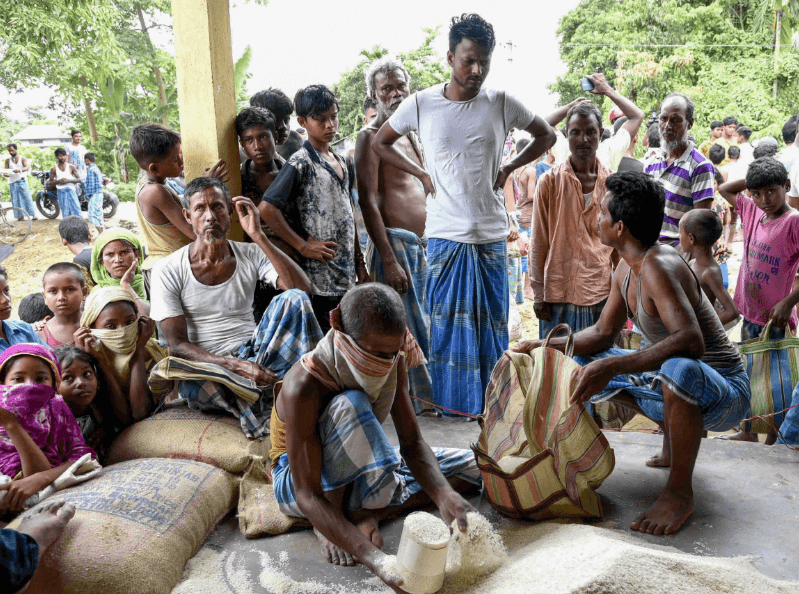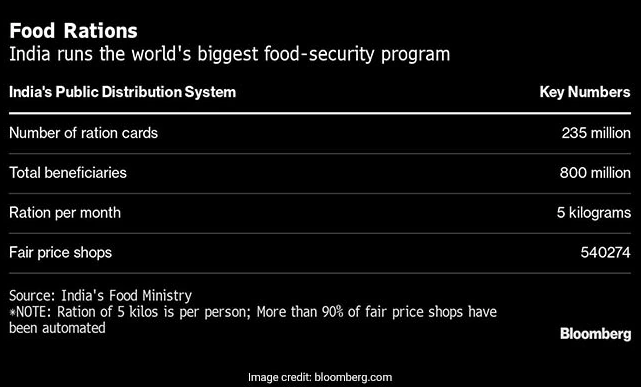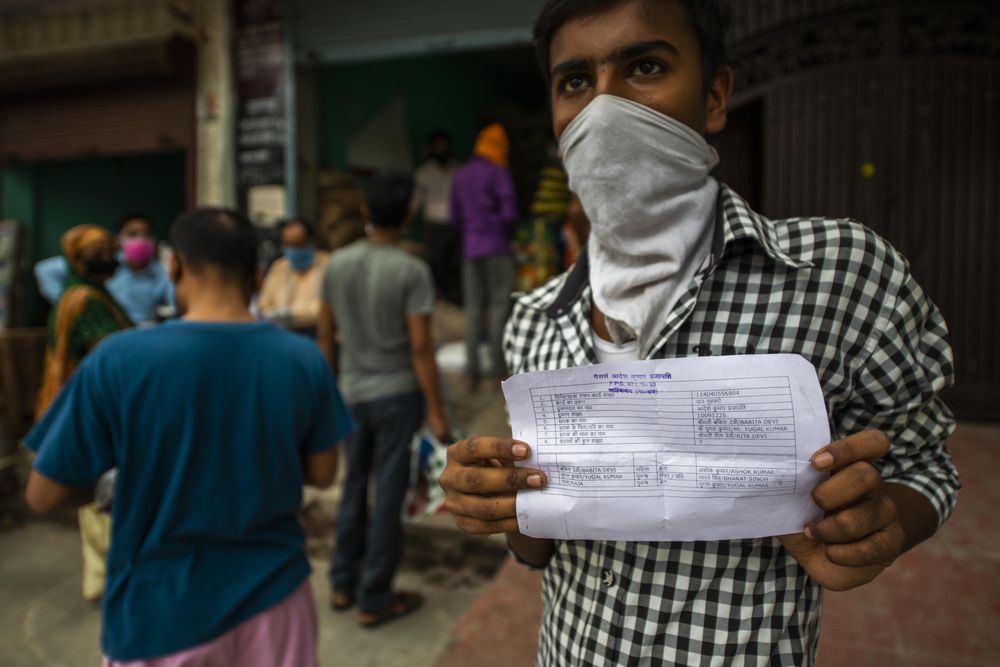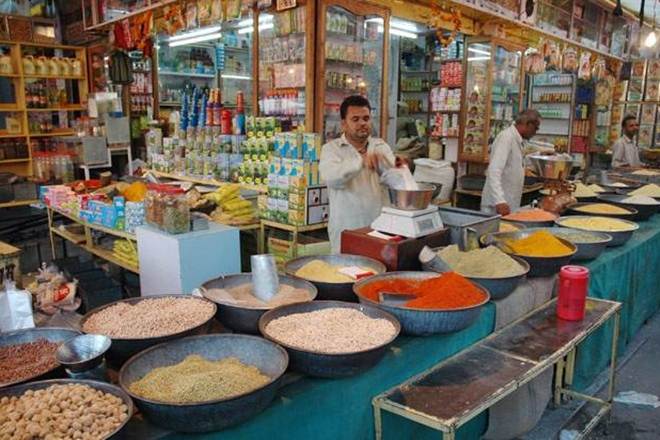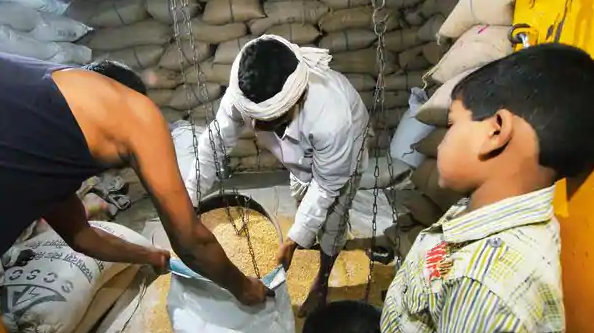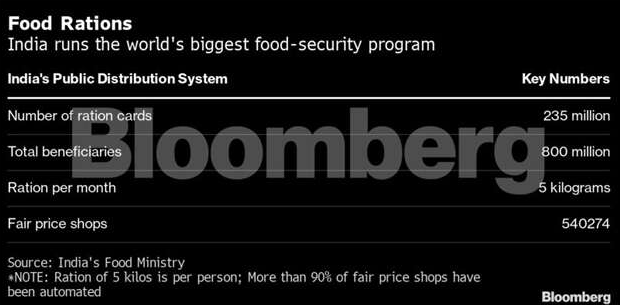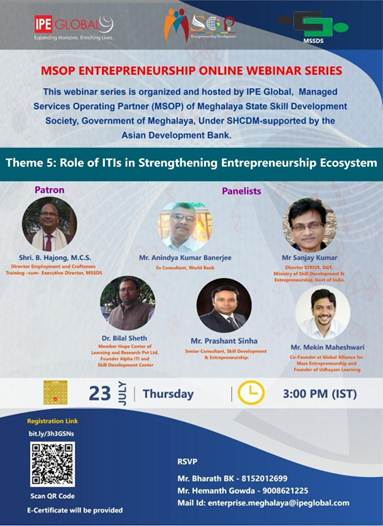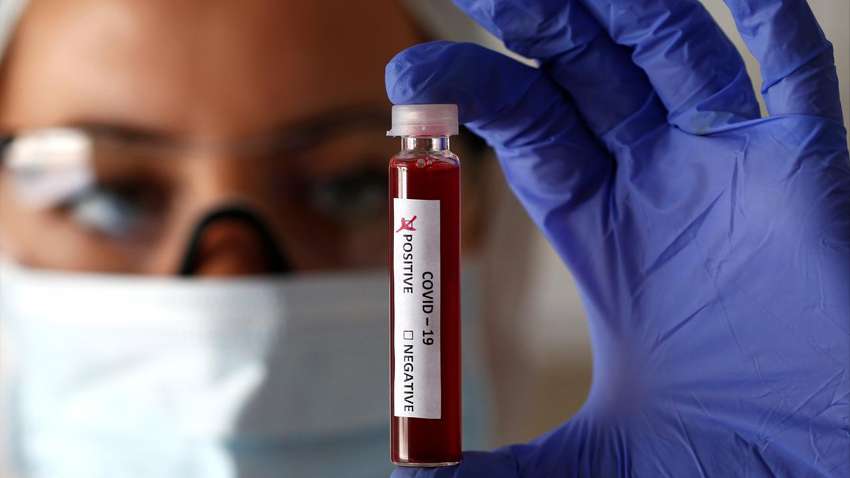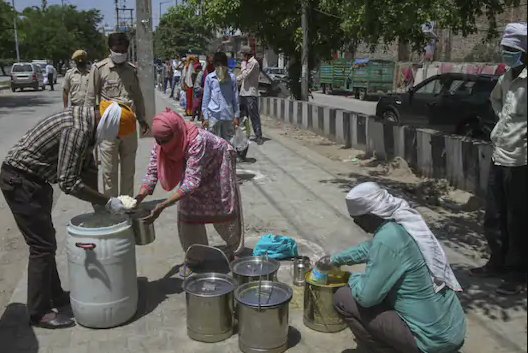India’s annual food-subsidy bill is more than 1 trillion rupees ($13.4 billion) — almost 4% of the national budget — as the government is required by law to provide 5 kilograms (11 pounds) of rice, wheat and coarse grains at subsidized rates as low.
Under the program, people are now allowed to take their quota of foodgrains from a “fair-price shop” anywhere in India by giving their ration card number and providing biometric authentication. Until now Indians could only receive the rations in their hometowns, which could discourage some from moving away in search of work.
Ashwajit Singh stated that One of the key challenges faced by the migrant workers in the cities at the beginning of the lockdowns was the lack of food security and a lack of access to foodgrains.
Under the program, people are now allowed to take their quota of foodgrains from a “fair-price shop” anywhere in India by giving their ration card number and providing biometric authentication. Until now Indians could only receive the rations in their hometowns, which could discourage some from moving away in search of work.
The coronavirus outbreak is accelerating a push to digitize India’s food-rationing system, allowing citizens to receive entitlements anywhere in the country — boosting labor mobility and the country’s economic recovery.
The “One Nation One Ration Card” system will include about 800 million people under the world’s biggest food-security program. Prime Minister Narendra Modi’s administration is betting that nationwide portability of rations can help bring migrants back to cities after the world’s largest lockdown — imposed in March with just a few hours’ notice — left […]
India, which is at the third spot after the US (4,238,500) and Brazil (2,419,091) in covid-19 cases, has been seeing a sharp upward trend of the disease in its cumulative cases average. This is despite India being far behind in testing than these countries. The country saw a record 50,000 infections in the past one […]
MSOP Entrepreneurship Webinar Series today on “Role of ITIs for Strengthening Entrepreneurship Ecosystem” hosted and organised by IPE Global, Managed Service Operating Partner (MSOP) of Meghalaya State Skill Development Society, Government of Meghalaya, under SHCDM- supported by the Asian Development Bank.
From donating medical supplies and free food to donating money and opening hospitals, Indian corporates are taking a lead in response to the Covid-19 crisis. As Covid-19 sweeps across the world, the role of business in society continues to evolve. It’s encouraging to see how even in the midst of challenging times, corporate India is […]
As coronavirus-caused Covid-19 pandemic continues to shake up the economies across the world, many big corporate houses are coming forward and leaving no stone unturned to offer help to the people hit by the pandemic.
Learning AI, agriculture, environmental studies, health & hygiene and many other aspects should be made more rigorous to face and prevent challenges.
A recent paper published in the Lancet Global Health 2020, indicates thought provoking and worrisome estimates of under-5 child mortality due to the inaccessibility caused by the pandemic. A reduction anywhere between 39% and 51% in coverage of services related to family planning, antenatal care, child vaccinations, postnatal care and childcare, could increase wasting levels […]




